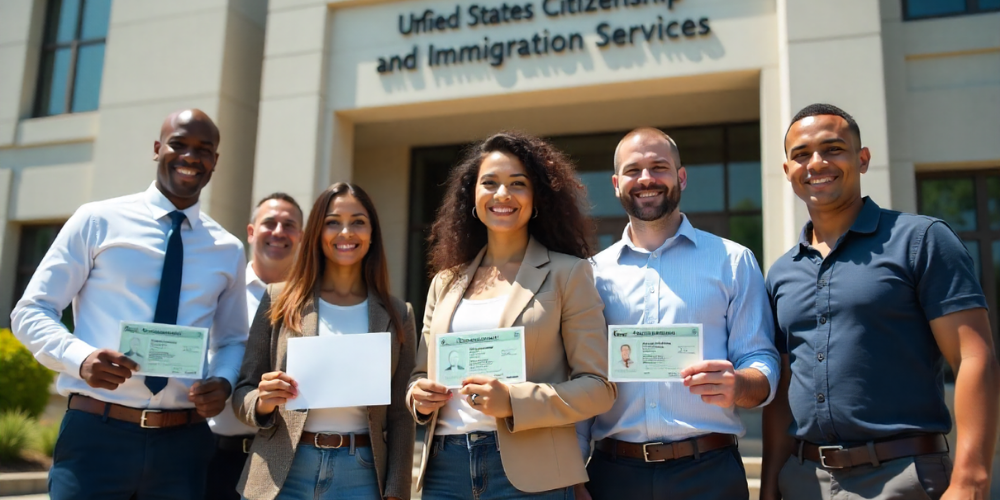--------- First 90 Days in the U.S.: A Complete Guide for Newcomers
Aug 27, 2025
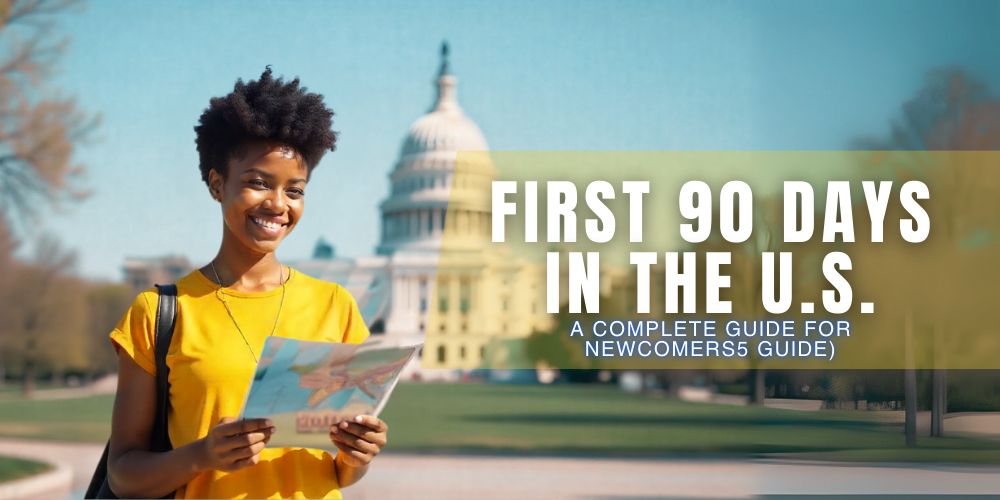
Relocating to the United States can be both exciting and overwhelming. The first 90 days in the U.S. are crucial for setting a strong foundation for your new life, whether you are arriving for work, study, or family reunification. This guide provides a comprehensive roadmap covering every important step you need to take to settle in smoothly.
Understanding Your Legal Status
Upon arrival, the first step is to review your immigration documents. Your I-94 arrival/departure record is one of the most important documents, as it confirms your lawful entry into the U.S. Ensure your visa, passport, and immigration status match the purpose of your visit. If you are on an employment or student visa, check the expiration date and terms of your stay. Any discrepancy should be addressed with U.S. Customs and Border Protection (CBP) or U.S. Citizenship and Immigration Services (USCIS) immediately.
Securing Housing
Finding a place to live should be a top priority. Temporary accommodation, such as hotels, Airbnb, or staying with relatives, can assist while you search for something more permanent. Consider the following:
- Rental Market Research: Websites like Zillow, Apartments.com, and local listings provide housing options.
- Lease Agreements: Understand lease terms, security deposits, and tenant rights before signing.
- Location Matters: Proximity to your workplace, school, or public transportation can make daily life easier.
Applying for a Social Security Number (SSN)
Your Social Security Number (SSN) is essential for working, paying taxes, and accessing various services. To apply, visit a local Social Security Administration (SSA) office with:
- Your passport
- Your visa and I-94 record
- Supporting documents from your employer or school (if applicable)
Most employment-based and student visa holders are eligible for an SSN, and obtaining it within the first 90 days is highly recommended.
Opening a Bank Account
A U.S. bank account is necessary for managing finances, paying bills, and receiving wages. Major banks such as Chase, Bank of America, and Wells Fargo offer newcomer-friendly services. You will typically need:
- Your passport
- Proof of U.S. address (lease agreement or utility bill)
- SSN (if already available)
For those who cannot obtain an SSN immediately, some banks accept an Individual Taxpayer Identification Number (ITIN) or just your passport.
Healthcare and Health Insurance
Healthcare in the U.S. is private and expensive without insurance. Within your first 90 days:
- Enroll in Health Insurance: If employed, your employer may provide coverage. Students should check with their university. Alternatively, you can explore coverage options at HealthCare.gov.
- Find a Primary Care Physician: Having a doctor for regular checkups and emergencies ensures you receive prompt care.
- Understand Emergency Procedures: Dial 911 for emergencies, and locate nearby hospitals and urgent care centers.
Transportation and Driving License
Getting around efficiently is critical:
- Public Transportation: Major cities like New York, Chicago, and San Francisco have robust metro and bus systems.
- Driver’s License: If you plan to drive, apply for a state driver’s license through the Department of Motor Vehicles (DMV). You may need to pass both written and road tests. In the meantime, some states allow driving with an international license.
- Car Purchase or Leasing: If necessary, research insurance options as car insurance is mandatory.
Employment and Workplace Adaptation
For work visa holders, adjusting to the U.S. work culture is a vital step:
- Know Your Employment Rights: Familiarize yourself with U.S. labor laws regarding minimum wage, overtime, and workplace protections.
- Networking: Building professional connections through LinkedIn, industry events, and local communities can help your career growth.
- Direct Deposit: Set up your bank account for direct salary payments.
Education and School Enrollment
If relocating with children, enrolling them in school should be done promptly:
- Public vs. Private Schools: Public schools are free for residents, while private schools require tuition.
- School Districts: Your residential address often determines which public school your child can attend.
- Required Documents: Proof of residence, vaccination records, and previous school transcripts.
For adults, consider continuing education through community colleges or professional certification programs to enhance career opportunities.
Cultural Adaptation and Community Integration
Adjusting to a new culture takes time, but these steps can ease the process:
- Learn Local Customs: Everyday interactions, greetings, and etiquette may vary from those in your home country.
- Language Skills: Strong English proficiency boosts confidence in work and social situations. Free and low-cost classes are available in many communities.
- Community Involvement: Join cultural associations, religious groups, or local volunteer opportunities to build a sense of belonging.
Managing Finances and Taxes
Your first 90 days should also include learning about the U.S. tax system:
- Understanding Taxes: Federal, state, and sometimes city taxes apply. Income taxes are withheld directly from paychecks.
- Filing Requirements: Even as a nonresident, you may need to file taxes annually. An SSN or ITIN will be required.
- Credit History: Building credit is essential for long-term financial stability. Start with a secured credit card or a newcomer credit program offered by banks.
Staying Compliant with Immigration Rules
Your legal stay depends on adhering to visa conditions. Key responsibilities include:
- Maintaining Status: Students must remain enrolled full-time, and workers must continue with their sponsoring employer.
- Timely Renewals: Apply for visa extensions or changes in status before expiration.
- Keeping Records Updated: Notify USCIS of address changes using Form AR-11 within 10 days.
Emergency Preparedness
The U.S. strongly emphasizes safety and preparedness. Within your first 90 days:
- Save Emergency Numbers: Besides 911, keep contacts for your embassy or consulate.
- Know Local Laws: Each state may have unique regulations regarding alcohol, smoking, and public behavior.
- Insurance Coverage: Beyond health, consider renters’ insurance and auto insurance for protection.
Frequently Asked Questions (FAQ)
1. What should I do immediately after arriving in the U.S.?
You should review your I-94 record, confirm your visa status, and secure temporary housing. Applying for an SSN and opening a bank account should follow soon after.
2. How long does it take to get a Social Security Number?
It typically takes 2–4 weeks after applying at the Social Security office, provided your immigration status allows it.
3. Can I drive with my international driver’s license?
Some states allow temporary use of an international license, but most require you to apply for a state-issued license within 30–90 days.
4. Do I need health insurance right away?
Yes, healthcare costs in the U.S. are very high. You should secure health insurance within your first few weeks, either through your employer, school, or the marketplace.
5. How do I build credit as a newcomer?
Start with a secured credit card, pay bills on time, and avoid overspending. Within 6–12 months, you will begin to establish a U.S. credit history.
6. What if I move to a new address?
You must notify USCIS within 10 days of changing your residence by filing Form AR-11 online.
7. Can I travel outside the U.S. during my first 90 days?
Yes, but you must have a valid visa and passport for re-entry. Always consult with your immigration lawyer or school/employer before leaving the U.S.
Conclusion: Building a Strong Foundation
The first 90 days in the U.S. set the tone for your entire journey. By securing housing, legal documentation, healthcare, finances, and community ties, you create a smooth transition into American life. Every step taken during this period builds confidence and ensures compliance with U.S. laws, giving you the stability needed to thrive long-term.
Recent Articles
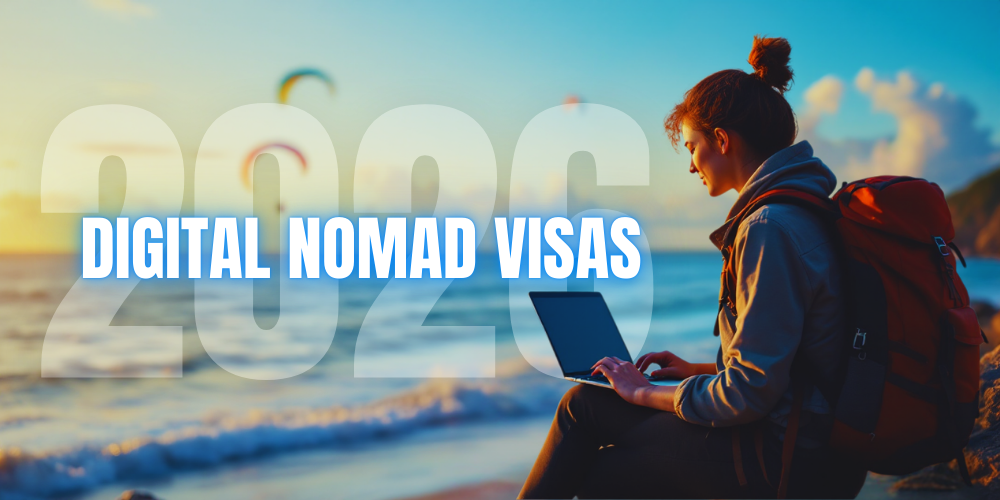
Top Digital Nomad Visas in 2026 (Portugal, Croatia, Estonia & More)
Remote work isn’t a trend anymore — it’s infrastructure. By 2026, governments aren’t just to
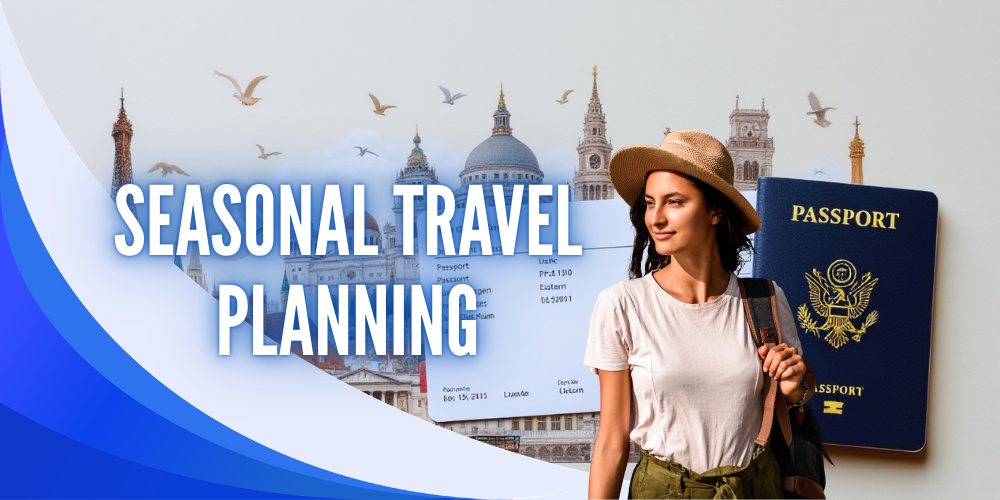
Seasonal Travel Planning: Spring in Europe (Visa Tips Included)
Spring—stretching from March through May—hits a sweet spot many travelers overlook. The continen
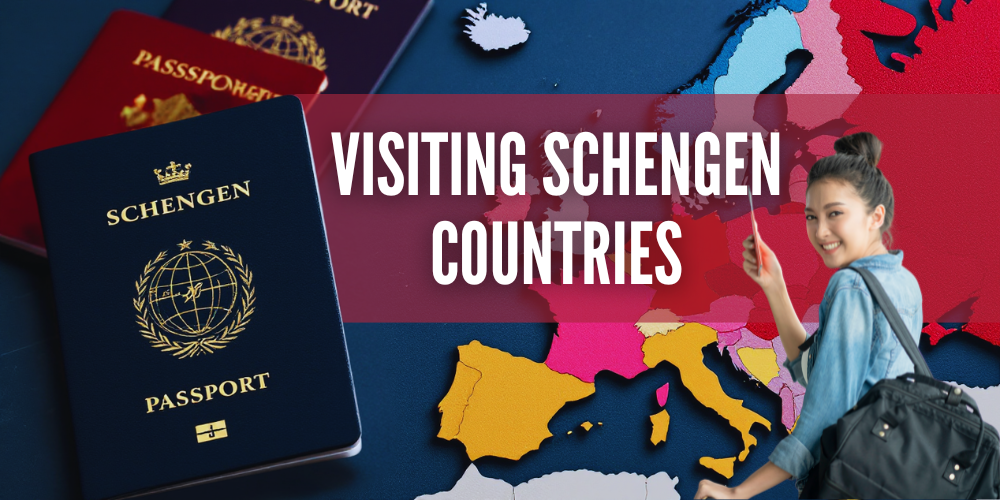
Best Schengen Countries to Visit with One Visa
A Schengen visa is one of the most powerful travel documents for exploring Europe. With a single app
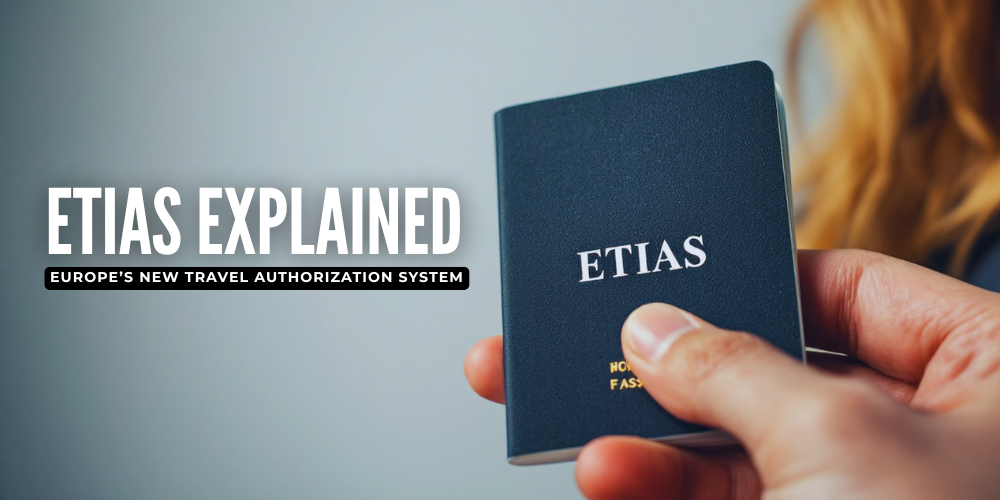
ETIAS Explained: Europe’s New Travel Authorization System
Europe is shaking up short-stay travel, and if you’ve ever zipped across the continent visa-free,
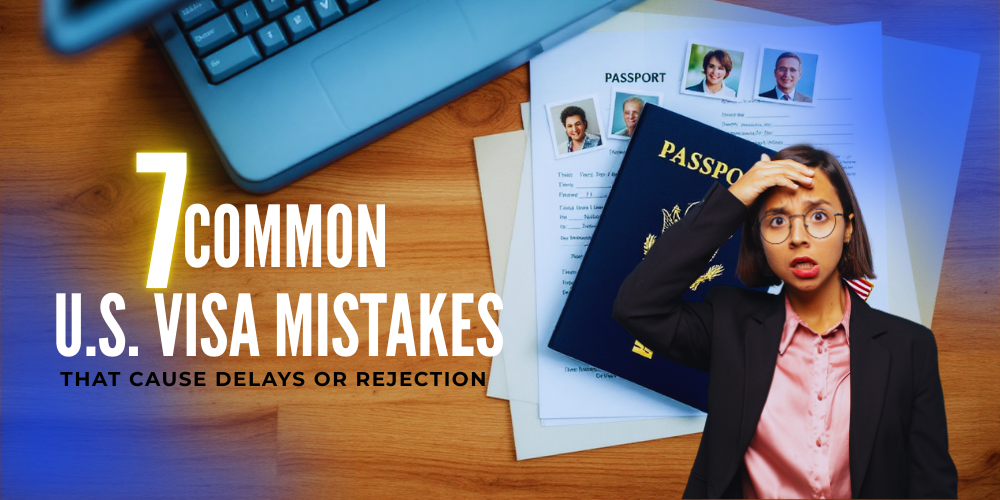
7 Common U.S. Visa Mistakes That Cause Delays or Rejection
U.S. visa delays and refusals are rarely caused by a single dramatic mistake. More often, they stem
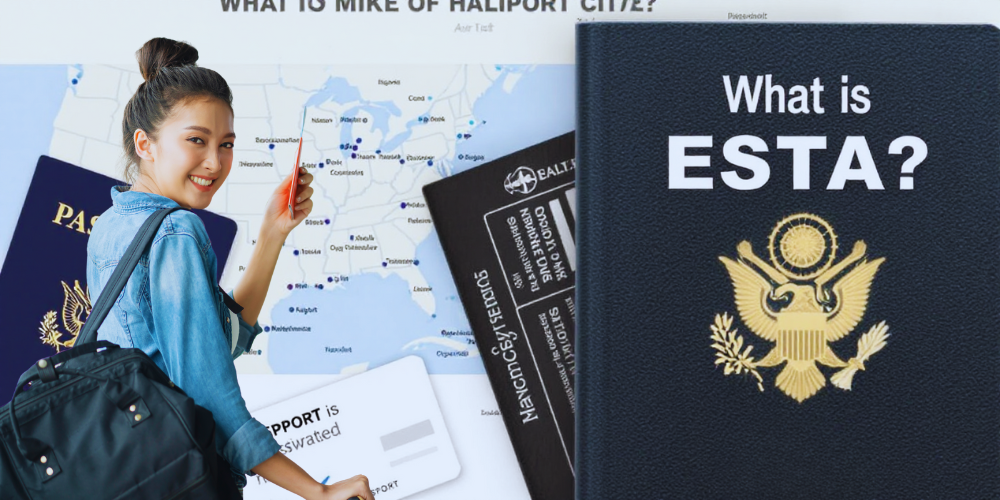
ESTA Explained: Who Needs It and How to Apply in 2026
The ESTA—short for Electronic System for Travel Authorization—is the quiet gatekeeper behind vis
Read More

Top Digital Nomad Visas in 2026 (Portugal, Croatia, Estonia & More)

Seasonal Travel Planning: Spring in Europe (Visa Tips Included)

Best Schengen Countries to Visit with One Visa

ETIAS Explained: Europe’s New Travel Authorization System

7 Common U.S. Visa Mistakes That Cause Delays or Rejection

ESTA Explained: Who Needs It and How to Apply in 2026

Welcome to the VisaTravel blog. We know that navigating the maze of visa applications and online forms can be as tricky as choosing the perfect travel playlist (which is all we want you worrying about anyway).
Throughout our years of experience, though, we’ve uncovered a mountain of knowledge which, via this blog, we’re sharing with you! Whether you're diving into the world of travel visas, wondering about the ESTA online hustle, or just trying to figure out the DS160 form, think of us as your online concierge, here to make the process easy and most of all, clear.
At this point in our global context, who has time for endless paperwork and confusing legal jargon? No one. That's why we're all about spilling the tea on online visa hacks, easier-to-work-with DS160 forms, and giving you tips on everything from tourist visas to immigration, to that last-minute ESTA online adventure.
So, just plug in a word you’re curious about on the search bar, and boom. We've got the tips, tricks, and insider info to help you (and anyone else you may be traveling with) get to your travel destination with the confidence of a seasoned traveler.
Now go explore!
 U.S. Visa
U.S. Visa
 Canada eTA
Canada eTA
 Schengen Visa
Schengen Visa
 New Zealand eTA
New Zealand eTA
 United Kingdom eTA
United Kingdom eTA
 Australia eVisitor
Australia eVisitor
 Vietnam eVisa
Vietnam eVisa
 Egypt eVisa
Egypt eVisa
 Singapore Arrival Card
Singapore Arrival Card
 Sri Lanka eVisa
Sri Lanka eVisa




